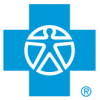
Benefits of Over-The-Counter Medications.
Do you suffer from common ailments such as allergies, headache or heartburn?
An OTC medication may help. OTC medications can be purchased without a prescription and can effectively treat many common health conditions.
Why choose OTC medications?
OTC medications are typically used for symptomatic relief of minor health conditions, including headaches, colds and fever. OTC medications usually cost much less than prescription medications.
Prescription Drug: Clarinex® ($30 a month)
OTC Option: Alavert® ($17.40 a month)
Savings: A difference of more than 42% a month! Plus save time and the cost of a visit to your physician.
OTC medications are regulated by the Food and Drug Administration (FDA), which means they are held to high standards of safety, effectiveness and quality.
What should you consider when selecting OTC medications?
OTC medications should only be used when needed and as directed. Never exceed the recommended dosage. They can also interact negatively with other medications, both OTC and prescription, so consult your health care provider or pharmacist about any and all issues related to taking medications. Read all label and packaging instructions for OTC medications to know how much you should take, when to take it, what side effects you may encounter and what potential interactions you may have with other drugs.
For more information on OTC medication labels, visit the Federal Citizen Information Center's electronic pamphlet on medication labeling.
If a health problem persists or worsens while taking an OTC medication, consult your health care provider immediately.
Which OTC medications should you keep on hand in your home?
The medications listed below help treat the following common ailments:
Allergy: Antihistamine - Alleviates sneezing, runny, or itchy nose
Nasal/sinus congestion: Decongestant (oral and spray) - Makes breathing easier, relieves nasal congestion. Sinus formulas reduce sinus congestion
Constipation: Stimulant Laxative - Stimulates the intestines to promote bowel movement
Constipation: Bulk-forming Laxative - Increases stool volume to promote bowel movement.
Cough: Cough Suppressant - Eases dry, hacking coughs
Cough: Expectorant - Thins and helps clear mucus
Diaper rash: Protectant - Protects skin from coming into contact with urine and stool.
Diarrhea: Adsorbents - Attract and retain bacteria and toxins in the intestine
Diarrhea: Antispasmodics - Relieves intestinal cramping
Heartburn: Antacid - Neutralizes acid in the stomach
Heartburn: Acid Reducer - Reduces production of stomach acid
Itching skin: Hydrocortisone Cream - Soothes itching from bug bites, rashes due to shaving
Itching skin: Calamine - Dries the oozing and weeping of poison ivy, poison oak, and poison sumac
Mouth sores: NSAIDS such as aspirin, ibuprofen, Naproxen Sodium, or ketoprofen - Relieves symptoms
Mouth sores: Acetaminophen - Relieves symptoms
Scrapes & Skin Infections: Antibiotic Ointment - Helps wounds resist infection
Be sure to store medications in a cool, dry and secure place. Throw away medications that have expired. Keep all medications in their original containers to avoid taking the wrong medicine.

.webp)
Leave a message